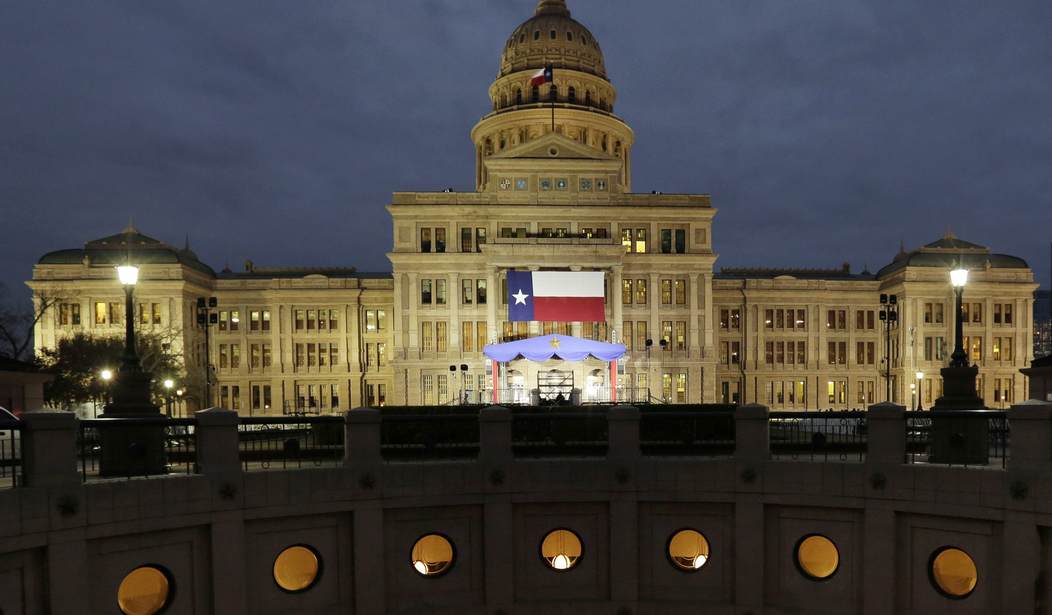The city of Austin, TX is basically the California of Texas. It’s easily the Lone Star State’s most liberal city, and that was true before Californians flocked there.
So you’d expect them to be all about things like gun control and gun buybacks.
Of course, it’s Texas, so they can’t really do much in the way of gun control even if they want to. As for buybacks, they can. The problem is that a recent memo from none other than Austin police chief Joe Chacon and the city’s director of development proposing options for a local initiative lays out some harsh truths about buybacks.
In response to Council asking for information on a possible gun buyback program, the memo advises against that step.
Based on data from a pair of gun buyback programs run by the city in 2010 and 2011, Chacon said another buyback program would likely not have a significant impact on street crime. While the programs, which cost $70,000 total to run, brought in 735 weapons, he said most of the firearms were unwanted guns gifted or bequeathed to family members.
The effectiveness of the programs was possibly undermined by the fact that private buyers set up outside the exchange centers were offering more than the $100 and $200 gift cards the city had available as an incentive.
A no-questions-asked gun surrender program started in 2020 and operated for one quarter before being suspended due to concerns over the Covid-19 pandemic. That program yielded 65 firearms and more than 1,000 rounds of ammunition, but [Chief Joe] Chacon wrote that most of those unwanted guns were unlikely to be involved in the kinds of violent crimes the city is specifically interested in stopping.
He wrote: “If the goal is to reduce gun violence and associated crime, gun buybacks are viewed as ineffective, as research suggests that firearms turned in by the public are the least likely to be associated with gun-related crimes and violence, and no empirical research has shown significant changes in gun-related crimes due to these programs.”
And this was in Austin.
Yeah, I know! I was shocked too.
However, Chacon is also completely right. Studies haven’t found where buybacks accomplish anything. We’ve seen numerous studies through the years illustrating they don’t work, and yet cities keep wasting resources on such things.
The reason this typically happens is that officials need to be seen doing something, anything, that people will believe may reduce violence. They’ve been conditioned to believe these buybacks work.
For the Austin chief to make a statement like that in the memo is big.
Among other things, it may signal that even anti-gun communities are coming to realize that gun buybacks are a waste of time, money, and effort if the goal is to reduce violent crime. If they’re starting to realize it, then the days of the gun buyback are well and truly numbered.
That’s good news for people who prefer criminals not get paid to dump their firearms–which is where at least some guns at buybacks likely come from.
“But what about people who don’t want their gun and don’t want it to fall into criminal hands?”
Then take it to a licensed gun dealer and either sell it to them or have them sell it on consignment. Either way, the person buying it will have to undergo a criminal background check–yes, even in Texas–and while it’s not guaranteed to never end up in criminal hands, that’s unlikely.
Further, as Chacon noted, most of these guns aren’t really the kind people use for crime. They’re hunting rifles and single-shot shotguns. Sell whatever it is however you want. If it’s one of those, it’s not likely the bad guys are going to trip over themselves to use it to hold up a convenience store.
I’m just glad to see at least one city look at buybacks and recognize there are better uses of time and money.








Join the conversation as a VIP Member